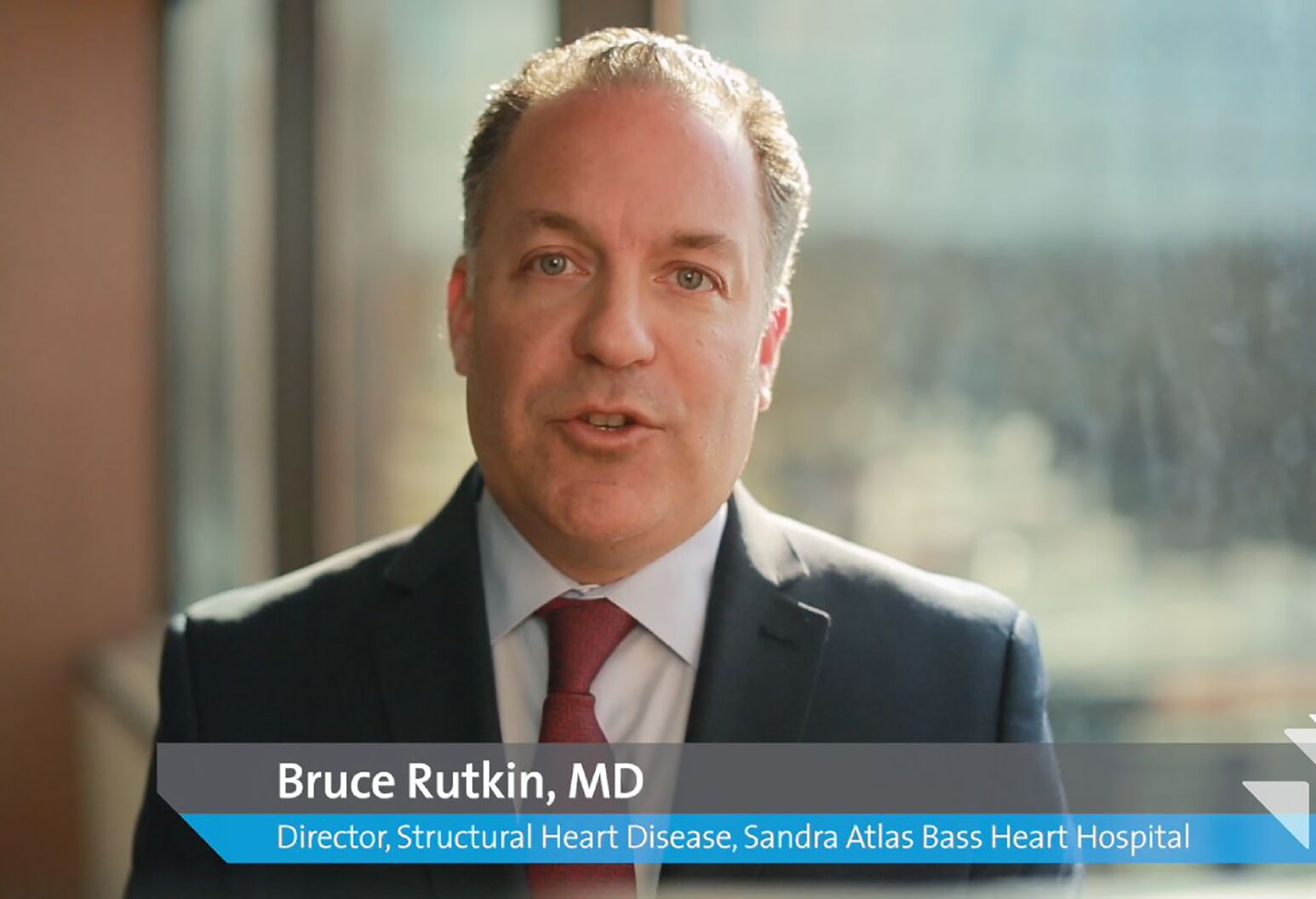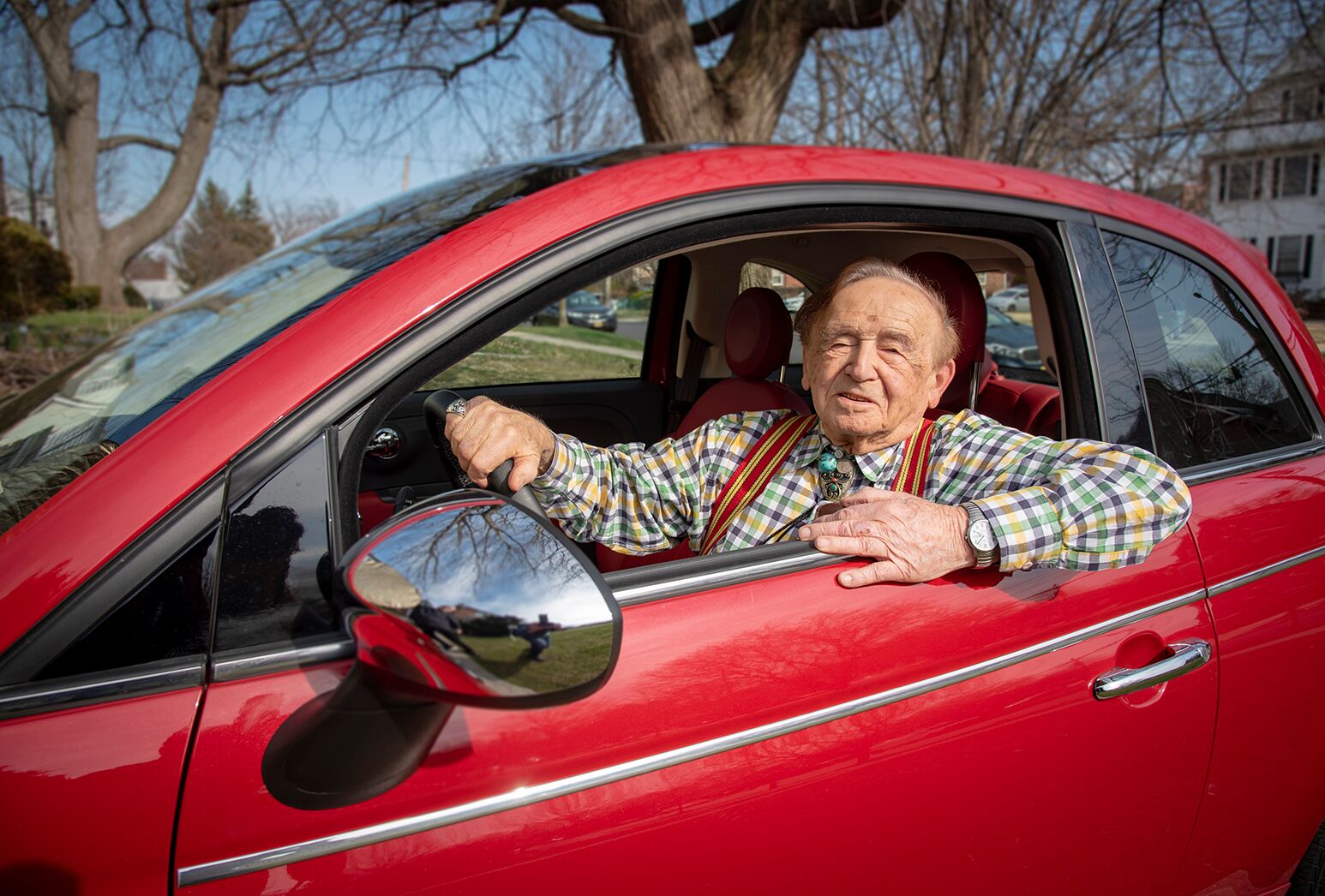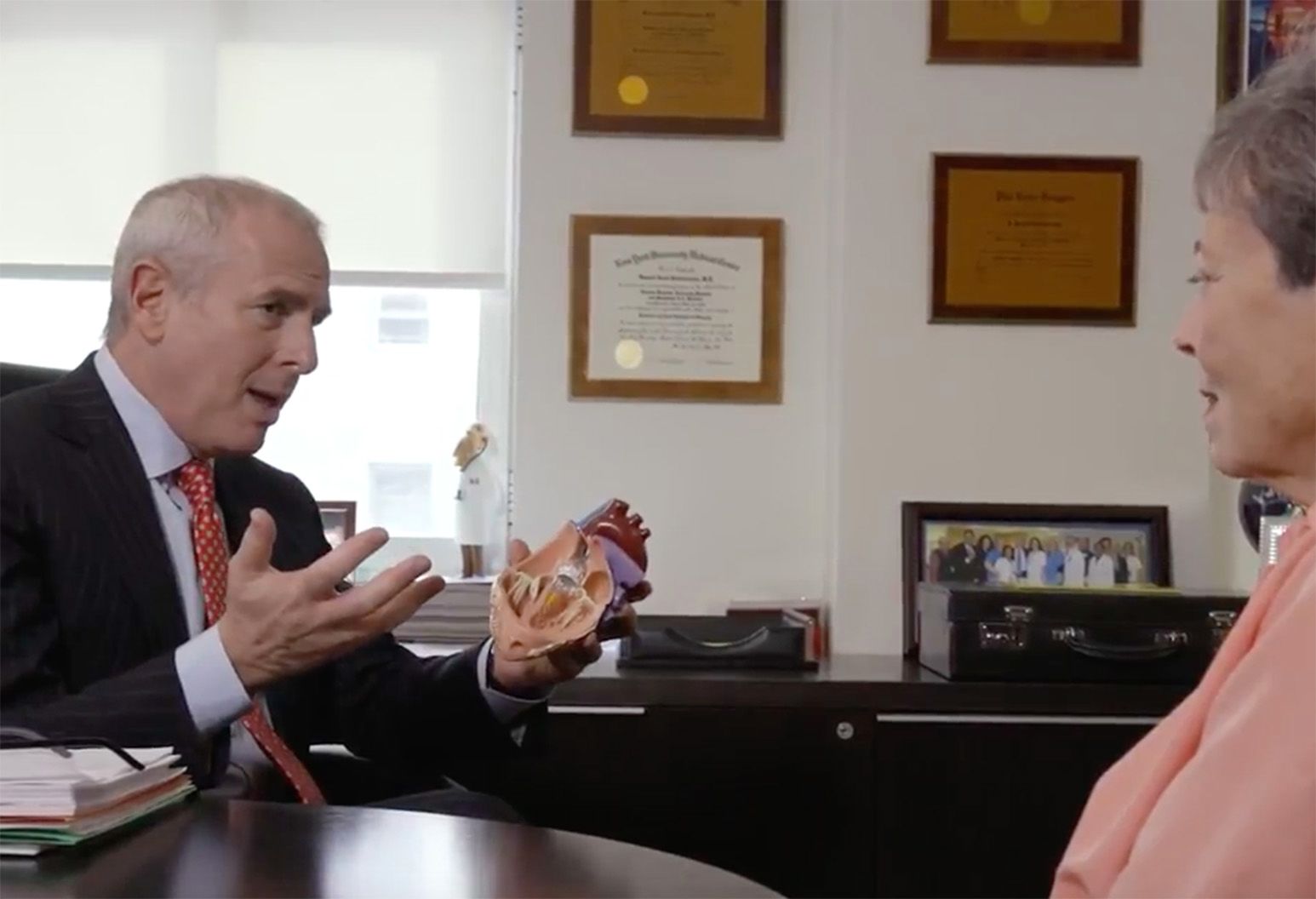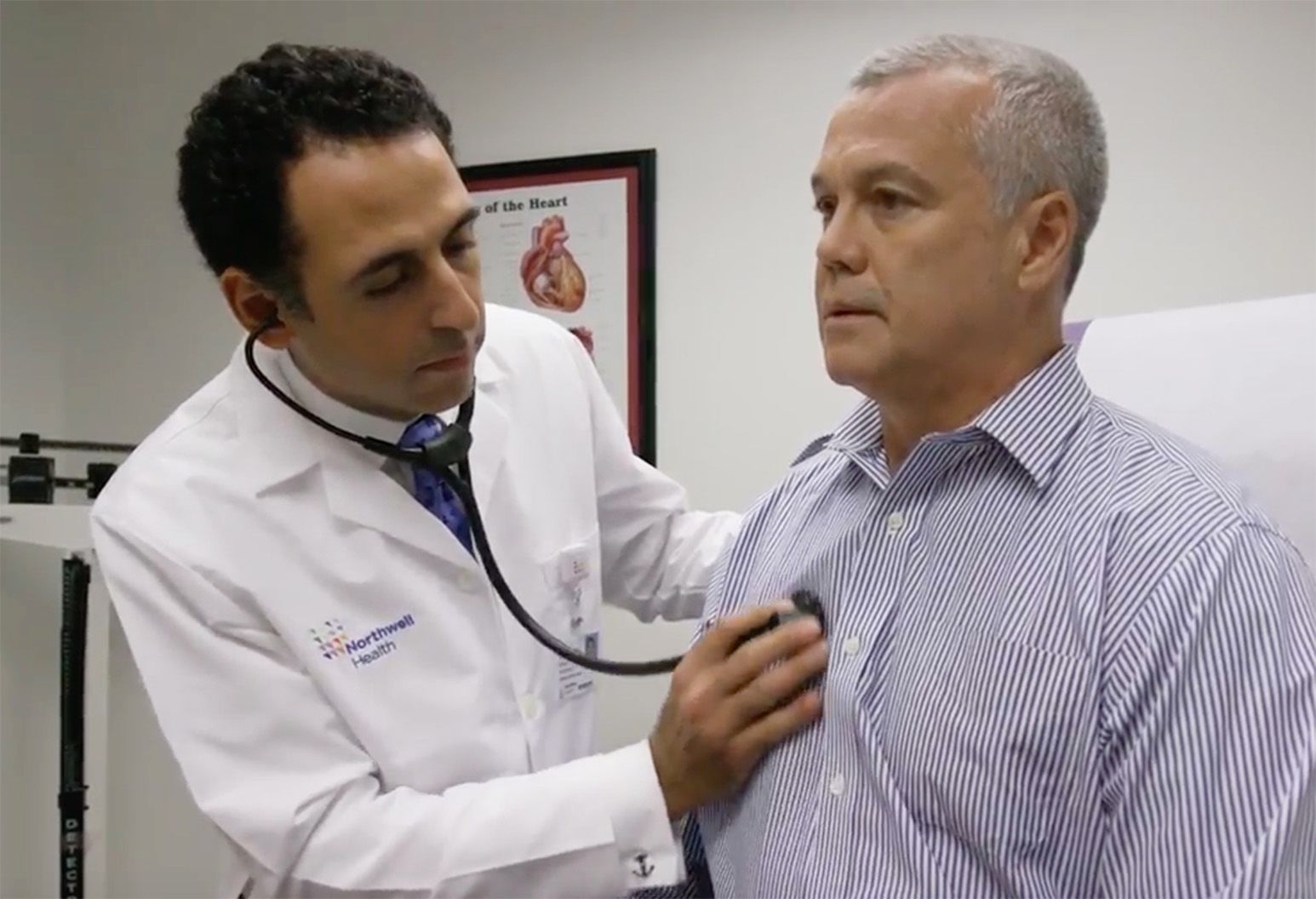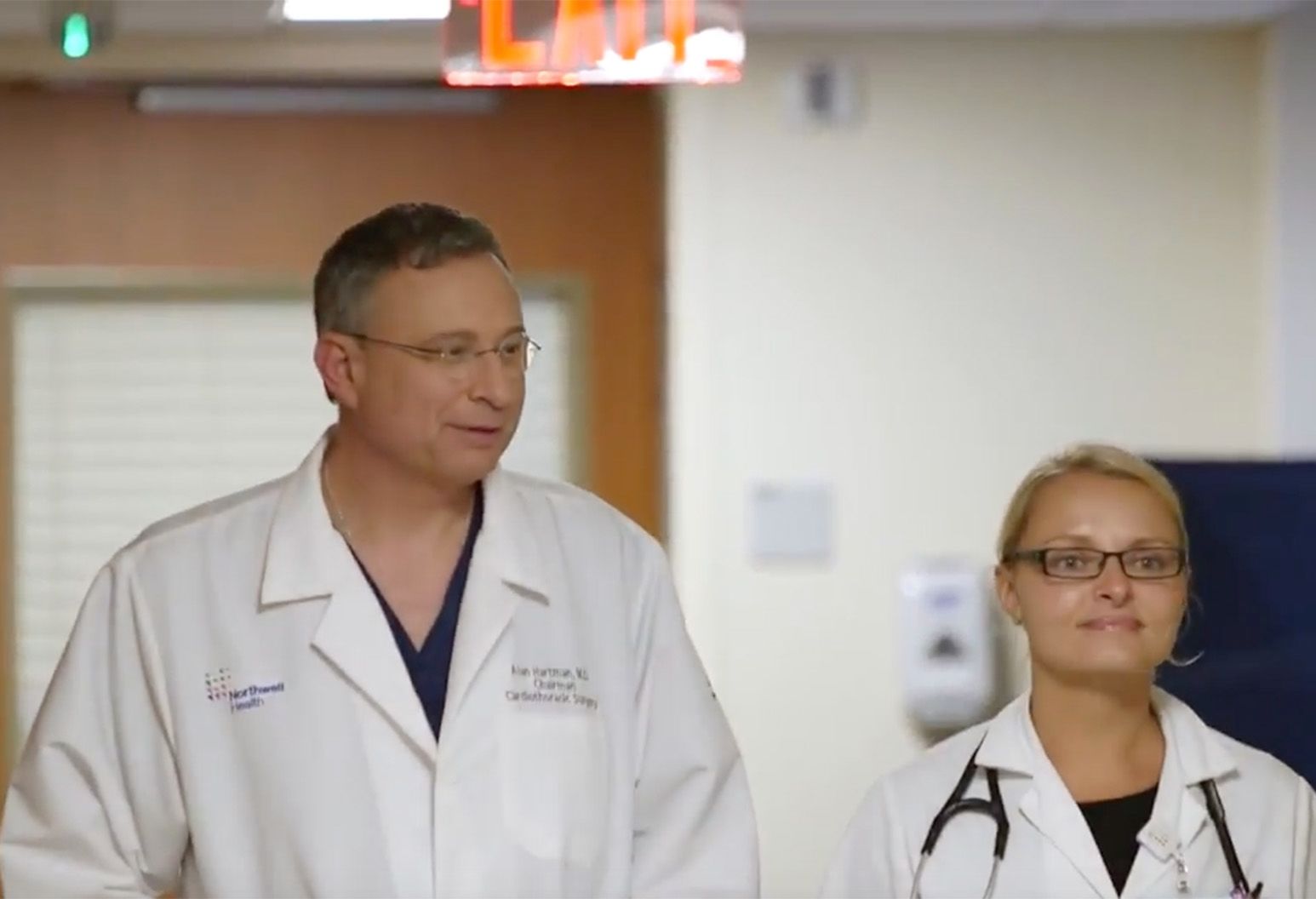Transcatheter aortic valve replacement (TAVR)
What is transcatheter aortic valve replacement (TAVR)?
Transcatheter aortic valve replacement (TAVR) is a minimally invasive cardiac surgical procedure that involves a physician guiding a catheter through an artery to the heart with an artificial valve attached. The valve is anchored inside the aorta and expands, helping to restore blood flow. TAVR is performed on intermediate- and high-risk patients suffering from severe aortic stenosis, or a narrowing of the aortic valve. Approximately 250,000 Americans currently suffer from this condition, which can have debilitating symptoms that affect normal day-to-day activities.
Traditionally, open-heart surgery has been the most common treatment for severe aortic stenosis. However, patients with severe aortic stenosis are often elderly and have other complicated medical conditions that make invasive surgery too risky. These patients once had little or no treatment options, but are now being considered for minimally invasive valve replacement at Northwell Health.
Our approach
Northwell was one of the first health systems in the region to offer the TAVR heart valve procedure, which has shown to significantly improve survival rates and quality of life, serving as a successful alternative to traditional cardiac surgery.
This innovative technology is at the forefront of cardiac surgery, which is why our team is involved with the next generation devices and applications through clinical trials. Current trials are underway to identify the role of TAVR in the low-risk patient population and to evaluate other replacement technologies in other heart valves.
The Sandra Atlas Bass Heart Hospital treats the most low-risk TAVR patients in New York state through clinical trials like Medtronic's Low Risk Continued Access study, which included the final implant rankings of all participating centers. We were also the sixth highest enroller in the country for this study.
Why it's done
TAVR is a preferred treatment for people who are considered at prohibitive, high or intermediate risk for open-heart surgery, either because of their age or other health conditions. TAVR can relieve the signs and symptoms of aortic valve stenosis and may improve survival in people who can't undergo surgery or are at an increased risk for surgical complications.
Advantages of TAVR surgery:
- Faster recovery rate
- Lower risk of complications
- Better long-term survival
TAVR is not an option for all patients. Your doctor will tell you if this procedure is right for you.
Success statistics
Quality is something we take seriously at Northwell Health. Our care teams are devoted to delivering world-class heart care, and others agree. It’s why third-party organizations like the New York State Department of Health (DOH) and the Society of Thoracic Surgeons (STS) continually recognize our programs for cardiac excellence.
In fact, for the seventh consecutive time, the DOH report has recognized our programs as having the state’s best outcomes for certain types of open-heart surgery. In their analysis, they looked at risk-adjusted outcomes and survival rates for patients undergoing surgeries for isolated coronary artery bypass grafting (CABG), the repair or replacement of heart valves, or both.
The Society of Thoracic Surgeons has also developed a comprehensive quality rating system for cardiac surgery among hospitals across the country. In the current analysis of national data, several Northwell hospitals were awarded the highest tier of "Three Star," and several others follow with an also impressive “Two Star” rating for quality
Risk factors
As with any surgery, there are risks associated with TAVR. These risks may be related to certain factors such as your age and current medical conditions. Speak with your cardiologist to discuss any possible risks and/or complications.
What to expect
The TAVR procedure is performed using multiple approaches. A majority of the time, it is performed through a percutaneous transfemoral approach, without an incision. Your doctor will determine which one provides the most effective and safest way to access the aortic valve.
- Transfemoral approach – entering through the femoral artery (large artery in the groin), which does not require a surgical incision in the chest
- Alternative approaches (transsubclavian, transinnominate, transcarotid, transcaval, transapical) – minimally invasive methods, which may include a small incision, and entering through a large artery or vein, and the apex of the left ventricle
During the TAVR procedure, a hollow tube (catheter) is inserted through the access point. Your doctor uses advanced imaging techniques to guide the catheter through your blood vessels, to your heart and into your aortic valve. A balloon may be used to accurately position the replacement valve. When the valve is securely in place, the catheter is removed.
How to prepare
- The day before surgery: Don’t drink, eat food or candy, or chew gum after midnight.
- The evening before surgery: Take a shower with a special soap you’ll be given to clean your skin and to help prevent infections. If you are already in the hospital, ask your family to take home personal items or valuables.
- The day of your surgery: Be prepared to remove any dentures, jewelry and contact lenses. You may be given medicine to help you relax, resulting in drowsiness and dry mouth.
Your doctor will provide you with specific instructions on how to prepare for your TAVR procedure. Discuss your treatment plan with your care team and prepare any questions you may have about the procedure.
Recovery
The TAVR procedure is less invasive than open-heart surgery and results in smaller incisions, less pain and shorter recovery time. Depending on your personal care, your recovery will be days or weeks, versus the months of recovery associated with open-heart surgery.
Follow-up care
During the first few months after surgery, follow-up visits and postsurgical testing at your doctor’s office is strongly encouraged. While medications and surgery will treat heart valve disease, they will not fully cure it. You will always need to see your doctor for lifelong follow-up care to make sure your heart valve functions as it should.
Life after surgery
How you feel after surgery will depend on your overall health and how well you take care of yourself. It's important to maintain your heart health after surgery by making positive lifestyle changes. This may include:
- Quitting smoking
- Treating high cholesterol
- Managing high blood pressure and diabetes
- Exercising regularly
- Maintaining a healthy weight
- Eating a heart-healthy diet
- Participating in a cardiac rehabilitation program, as recommended
Our expertise
See how we treat structural heart disease.
Our experts discuss how we look at aortic stenosis.
We pioneered robotic surgery, and today we're one of the most experienced teams in New York. Learn how smaller incisions, better visualization and an integrated cross-functional team minimizes your recovery time and maximizes your outcome.
Listen to our experts talk about what sets us apart as leaders in cardiac surgery.

